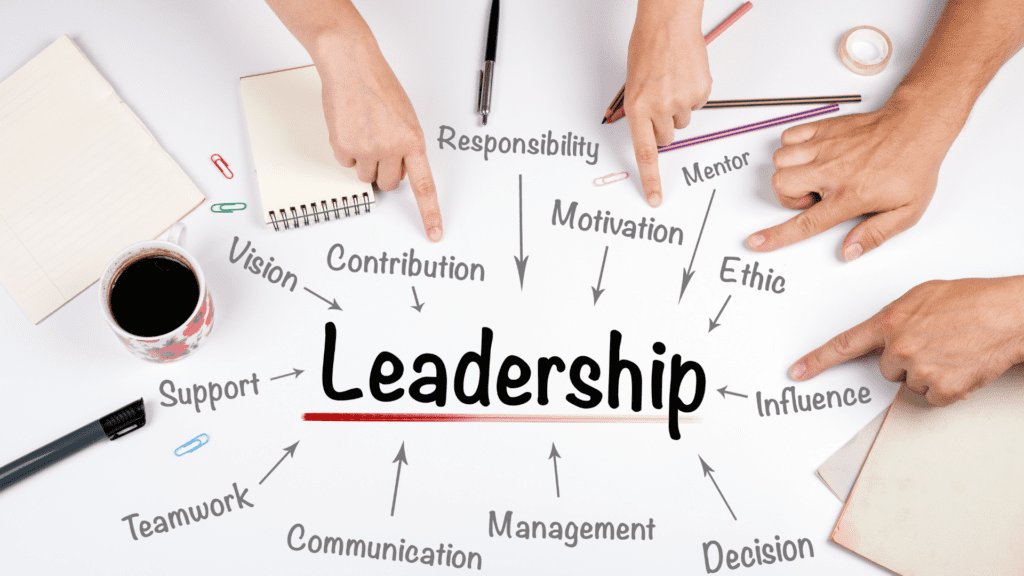In today’s fast-paced business environment, strategic leadership coaching is essential for those who want to excel. Leaders need more than just traditional management skills to stay ahead—they need the ability to think, adapt, and inspire in ways that foster sustainable growth and resilience. Neuroscience-based coaching offers a transformative approach to strategic leadership coaching, rewiring the brain for long-term success by focusing on critical leadership skills like confidence, decision-making, adaptability, and emotional intelligence.
Why Neuroscience-Based Coaching Transforms Strategic Leadership Coaching
Neuroscience reveals that the brain is highly adaptable, capable of rewiring itself in response to new experiences and learning—a concept known as neuroplasticity. My coaching approach leverages this science to create deep, sustainable change by targeting the brain’s natural ability to evolve. Learn more about neuroscience insights on leadership and how they affect coaching practices.
Unlike conventional coaching methods that focus primarily on behavior, neuroscience-backed coaching delves deeper, reshaping the neural pathways that drive thought patterns, emotional responses, and decision-making. This enables leaders to cultivate resilience, enhance emotional intelligence, and tackle challenges with clarity and confidence. The result is profound: improved strategic leadership coaching, stronger team dynamics, and long-lasting personal growth.

to adaptability, through strategic coaching.
The Role of Likability in Strategic Leadership Coaching
In strategic leadership coaching, likability is an often overlooked yet essential trait. Leaders who are likable tend to have more engaged teams, stronger relationships, and foster a collaborative environment. Emotional intelligence in leadership plays a significant role in developing these qualities and strengthening team dynamics.
Likability in leadership isn’t about being popular; it’s about fostering trust, respect, and rapport. Through neuroscience-backed coaching, leaders can improve their emotional intelligence and likability by learning to read emotional cues, respond empathetically, and communicate more effectively. Likable leaders encourage more open communication, which leads to stronger team dynamics and higher productivity—crucial elements in strategic leadership coaching.
Building Confidence and Emotional Intelligence for Strategic Leadership Coaching
Through neuroscience-backed coaching, leaders can build unshakable confidence and enhance their emotional intelligence (EQ)—both essential for navigating high-pressure environments. By reinforcing positive neural pathways, you will cultivate resilience, manage your emotional responses, and create an environment where your team thrives.
Leaders with high emotional intelligence are proven to be more likable and magnetic, creating a positive work culture where people flourish. This fosters loyalty, creativity, and collaboration within teams—crucial factors in strategic leadership coaching.

Neuroplasticity and Adaptability: A Core Skill in Strategic Leadership Coaching
At the core of neuroplasticity is the brain’s remarkable ability to reorganize itself, forming new connections based on experiences and learning. For leaders, this flexibility is critical to adaptability—a key skill in today’s rapidly changing business environment and a cornerstone of strategic leadership coaching. Learn more about neuroplasticity for leadership growth and how it drives leadership adaptation.
When leaders face unexpected challenges or need to pivot strategies, the ability to adapt quickly and efficiently comes from having a brain that’s wired for flexibility. Neuroscience-based coaching strengthens cognitive flexibility, empowering leaders to integrate applied strategic thinking into their decision-making processes, enhancing their ability to:
- Embrace change without hesitation or fear.
- Let go of outdated mindsets, adapting to new information and strategies with ease.
- Think creatively and develop innovative solutions when facing complex situations.
Through coaching, we train the brain to respond proactively rather than reactively. Neuroplasticity enables leaders to leave behind rigid thinking patterns and develop the mental agility needed to thrive in uncertain environments. Leaders who leverage neuroplasticity are better equipped to navigate global crises, industry shifts, or team restructures—keeping their organizations moving forward in the face of challenges. This adaptability is a key pillar of strategic leadership coaching.
Confident Decision-Making: The Neuroscience Advantage for Strategic Leadership Coaching
Decision-making is a crucial aspect of strategic leadership coaching, yet many leaders struggle with making confident decisions, especially in high-pressure environments. Neuroscience-based coaching provides a framework that helps leaders balance logical thinking with emotional intuition, both essential for effective decision-making.
Stress and overwhelm can impair the brain’s ability to make decisions, as it activates the amygdala—the part of the brain responsible for the “fight or flight” response. Neuroscience-based coaching helps leaders learn how to regulate their stress response, allowing them to stay calm and make clear, confident decisions even in challenging situations. By rewiring the brain to improve emotional regulation and impulse control, leaders can approach decision-making with greater clarity and poise—critical skills in strategic leadership coaching. For more on how neuroscience enhances decision-making, explore neuroscience-driven coaching effectiveness.

The 5 Levels of Strategic Leadership
Strategic leadership operates on different levels, each offering unique insights and responsibilities. Understanding these levels allows leaders to build a strong foundation for making high-impact decisions, fostering adaptability, and driving organizational success.
- High-Potential Individual Contributor: At this level, leaders are still honing their skills but show promise for future leadership. They contribute through individual work and demonstrate the ability to think strategically on a smaller scale.
- Emerging Leader: Leaders in this stage are transitioning into leadership roles. They are beginning to manage teams and align their personal leadership goals with organizational strategy, focusing on short-term tactics.
- Operational Leader: These leaders manage teams and operations, implementing strategic decisions that affect their departments or divisions. They bridge the gap between upper management’s long-term goals and day-to-day execution, ensuring that strategy is operationalized effectively.
- Strategic Leader: At this level, leaders are responsible for shaping long-term strategy. They focus on external opportunities, market shifts, and ensuring their teams are adaptable to change. Strategic leaders are the drivers of innovation and large-scale transformation within the organization.
- Visionary Leader: The pinnacle of strategic leadership, visionary leaders guide the overall direction of the organization. They craft the long-term vision, align stakeholders, and anticipate future challenges and opportunities, ensuring the company’s success for decades to come.
Understanding these levels helps in identifying where a leader currently stands and what steps are necessary to evolve their leadership capabilities. Through strategic leadership coaching, leaders can develop the skills needed to progress through these levels, eventually achieving visionary leadership.
Personalized Coaching for Sustainable Strategic Leadership Coaching
Leadership development should never be a one-size-fits-all process. My approach offers hyper-personalization, where each leader’s coaching plan is tailored to their unique brain patterns, emotional triggers, and professional goals. This personalized approach ensures that leaders experience growth not only in their professional roles but also in their personal lives, making it ideal for those seeking professional for personal leadership development. This level of customization guarantees that the coaching experience drives both short-term progress and long-term success.
My method isn’t just for senior executives—it’s just as effective for emerging leaders. Neuroscience-based coaching equips rising talent with the emotional agility and strategic thinking they need to transition into leadership roles, making strategic leadership coaching more impactful for future generations of leaders.

Ready to Elevate Your Leadership with Strategic Leadership Coaching?
If you’re ready to take your leadership skills to the next level, book a 1 hr Elite Insight Strategy Call today. We’ll design a personalized coaching plan to not just meet but exceed your expectations. Together, we’ll create lasting transformation using cutting-edge neuroscience-based strategies.
Leadership, , , , , , , , , , , , , , , , , , ,













